#how to learn to trade the forex markets
Explore tagged Tumblr posts
Text
Exploring Forex Trading Scales: Micro, Mini, and Macro for Traders With Funded Traders Global

The blog titled "Forex Trading Scales: Micro Macro and Mini" discusses the different trading scales in the field of Forex trading and their significance in shaping trading strategies. It outlines three main trading scales - micro, mini, and macro - and describes their characteristics and benefits.
Micro Trading: This scale involves trading on a small level, with micro-lot sizes. It's suitable for beginners or those with limited capital. Traders in this category dip their toes into Forex trading, learning the basics without diving deep into risk.
Mini Trading: Positioned between micro and macro, mini trading involves slightly larger trade sizes with mini lots. Traders who have gained some experience in the market but are not yet ready for larger trades can benefit from this scale. It strikes a balance between risk and potential returns.
Macro Trading: This scale is for experienced traders and institutions dealing in larger trade sizes. It requires analyzing macroeconomic trends, global events, and economic indicators. Macro traders engage in substantial trades that can have significant impacts on the market.
The blog also introduces Funded Traders Global, a platform designed to help traders overcome limited capital and risk management challenges. The platform allows traders to prove their skills in a simulated environment and, upon meeting performance criteria, offers the opportunity to trade with a funded account, accessing more capital and potential profits.
The blog delves into each trading scale's advantages, who benefits from them, and how they align with traders' risk appetites and experience levels. It highlights that traders' decisions should be guided by factors such as market volatility, risk tolerance, economic events, and their own capital and expertise. Funded Traders Global is presented as a tool that can empower traders to bridge the gap between their aspirations and financial limitations.
In summary, the blog provides a comprehensive overview of the micro, mini, and macro trading scales in Forex, emphasizing how each scale caters to different traders' needs and goals. It also underscores the role of Funded Traders Global in helping traders navigate these scales effectively.
#Advantages of Macro Trading#Advantages of Micro Trading#and Mini#and Mini Scales#Choosing the Right Scale for You Guide readers on how to choose the appropriate trading scale for their goals and circumstances#economic events#Forex Trading Scales With Micro#FTG#fundamental analysis#Funded Traders Global#Influencing Your Trading Journey#Navigating Micro#Learning and Practice#Long-Term Trends#Low Capital Requirements#Macro#Macro Forex Trading#Macro traders#Macro Trading#market volatility#micro#Micro Forex Trading#Micro traders#Micro Trading#Mini Forex Trading#Mini traders#Mini Trading#News Trading#Risk Management#Strategies of the Masters
1 note
·
View note
Text

FOREX TRADING EDUCTION & TRAINING
Learn Forex Market Trading with Expert Trainers. We are providing complete forex education from beginners to advance level.
#forex education#best trading strategy#day trading#how to trade forex#forex online trading#forexmarket#forex systems#forex trading#forex trading for beginners#Forex Trading#Forex Trader#Forex for Beginners#How to Trade Forex#Forex Strategy#Forex Signals#Learn Forex#Forex Trading for Beginners#Forex Course#Forex Market#Forex Trading Live#Forex Trading Strategy#Forex Lifestyle#Forex Education#Forex Trading Strategies#Simple Forex Strategy#Forex Tips#Live Forex#Live Forex Trade#Forex Strategies#Live Forex Trading
0 notes
Text
Forex Trading
Forex trading, or foreign exchange trading, involves buying and selling currencies to profit from changes in exchange rates. Here’s a detailed guide to get you started:
1. Understanding Forex Trading
Currency Pairs: Forex trading always involves trading one currency for another. Currencies are quoted in pairs (e.g., EUR/USD, GBP/JPY). The first currency is the base currency, and the second is the quote currency.
Pips: The smallest unit of movement in a currency pair’s exchange rate. For most pairs, a pip is 0.0001.
Leverage: Allows you to control a large position with a relatively small amount of money. While leverage can amplify profits, it also increases risk.
2. Setting Up Your Forex Trading
Choose a Reliable Broker: Select a forex broker that offers a user-friendly trading platform, competitive spreads, and good customer service. Look for brokers with a solid reputation and proper regulatory oversight (e.g., regulated by the Financial Conduct Authority (FCA) or the Commodity Futures Trading Commission (CFTC)).
Open a Trading Account: After selecting a broker, open a trading account. Many brokers offer demo accounts where you can practice trading without real money.
Deposit Funds: Fund your trading account with an amount you’re comfortable with. Remember, forex trading can be risky, so only invest money you can afford to lose.
3. Develop a Trading Strategy
Technical Analysis: Uses historical price data and charts to forecast future price movements. Key tools include indicators (like Moving Averages, RSI, MACD) and chart patterns (like head and shoulders, flags).
Fundamental Analysis: Involves analyzing economic indicators, news events, and other factors that might impact currency values. Key indicators include GDP, interest rates, inflation, and employment data.
Risk Management: Set stop-loss and take-profit orders to manage risk and protect your capital. Determine how much you’re willing to risk on each trade.
4. Executing Trades
Place Orders: Use your broker’s trading platform to place trades. You can choose from various order types, such as market orders, limit orders, and stop orders.
Monitor and Adjust: Keep track of your trades and the market conditions. Adjust your strategies and positions as needed based on market movements and your trading plan.
5. Continuous Learning and Improvement
Stay Informed: Follow financial news, economic reports, and market analyses to stay up-to-date with factors affecting currency markets.
Review and Reflect: Regularly review your trades to understand what worked and what didn’t. Learning from past trades helps improve your strategy.
Adapt: Forex markets are dynamic and can change quickly. Be ready to adapt your strategies to new market conditions.
6. Avoiding Common Pitfalls
Overleveraging: Using high leverage can lead to significant losses. Start with lower leverage until you gain more experience.
Emotional Trading: Avoid making decisions based on emotions. Stick to your trading plan and strategy.
Lack of Research: Ensure you conduct thorough research and analysis before making trading decisions.
Resources for Learning Forex Trading
Books: “Trading in the Zone” by Mark Douglas, “Currency Trading for Dummies” by Brian Dolan and Kathleen Brooks.
Online Courses: Platforms like Coursera, Udemy, and Babypips offer courses on forex trading.
Websites: Follow financial news on websites like Bloomberg, CNBC, and Reuters.
business, forex, art, usbiz, usa art, fine art, trading, forex trading
12 notes
·
View notes
Text
Crypto Meets Forex: Navigating Risks and Opportunities in 2025

Based on my experiences, I have seen various innovations of money with Bitcoin and other cryptocurrencies bringing major changes in the financial market. The overall flow of bitcoins is now stronger, and fluctuations in coins such as Polkadot or Dogecoin increase — all this affects the Forex market. This is where we traders get both the challenge and the thrill to perform, but with the right strategic plans in place, it is a brilliant chance to expand.
Why Crypto is Vital for Forex Traders
In the fast-paced world of trading, volatility is where the action is, and crypto delivers that in spades. While Forex markets move with global economic trends, crypto thrives on sentiment and speculation, making it a goldmine for those who know how to adapt.
Volatility Creates Opportunities: Coins like Bitcoin can swing dramatically in a single day, offering quick wins for prepared traders.
Crypto-Fiat Connections: Bitcoin’s rise often hints at movements in fiat pairs like EUR/USD or USD/JPY.
2025 — A Game-Changer: With Bitcoin adoption growing, I believe the next few years could redefine how crypto and Forex markets interact.
How I Approach the Crypto-Forex Connection
Stay Informed: Whether it’s new regulations in Europe or tech updates from Silicon Valley, the crypto market moves fast. Keeping up with global news helps me anticipate opportunities.
Manage Risk Like a Pro: Crypto’s volatility is thrilling, but it’s also risky. I use tools like stop-loss orders and position sizing to protect my capital while staying in the game.
Watch Market Overlaps: When Bitcoin rallies, I often notice shifts in fiat currencies. Understanding these connections can turn crypto trends into Forex profits.
Adapt My Strategy: Adding crypto pairs like BTC/USD or ETH/EUR to my portfolio has opened new doors. It’s a way to diversify and catch moves I might have missed otherwise.
Why I Trust ORION Wealth Academy
For me, trading is about constant learning and growth, and ORION Wealth Academy has been a game-changer. Their approach to Forex and crypto education is unmatched, offering tools and strategies that work for traders at all levels.
Here’s what makes ORION stand out: ✅ Expert coaching on navigating both crypto and Forex markets. ✅ Daily analysis to stay on top of key trends like Bitcoin’s momentum. ✅ Practical lessons tailored to beginners and seasoned traders alike. ✅ Weekly signals that help me spot opportunities in this fast-moving landscape.
ORION doesn’t just teach you how to trade — it prepares you to excel in markets where crypto and Forex intersect.
Looking Ahead to 2025
As we move into 2025, the relationship between crypto and Forex will only grow stronger. Here in France, I see more traders adapting to these changes, ready to embrace the challenges and opportunities they bring.
If you’re ready to navigate this dynamic market, join ORION Wealth Academy. Their insights and strategies have helped me trade smarter and more confidently.
Start your journey today — because 2025 won’t wait for anyone.
#forexeducation#forexmarket#forex#forextrading#forexbroker#investment#forex online trading#forexsignals#forextips
6 notes
·
View notes
Text
Forex trading signals for part-time traders
Forex trading can be a lucrative venture, even for those with limited time on their hands. Part-time traders often face the challenge of managing their trades efficiently. In this article, we'll explore the world of Forex trading signals and how they can be a valuable tool for part-time traders.
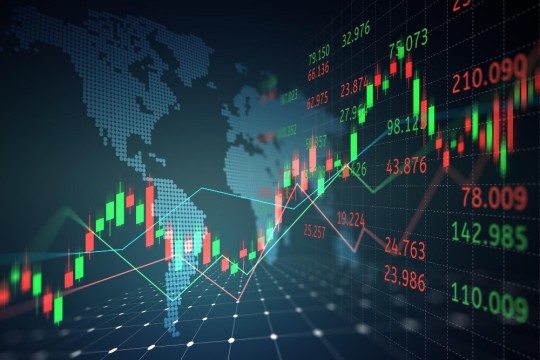
What are Forex Trading Signals?
Forex trading signals are indicators or notifications that suggest optimal times to enter or exit a trade. These signals are generated through thorough market analysis by professional traders or automated systems. For part-time traders, relying on these signals can save time and provide valuable insights into the market.
Here are some tips for part-time traders:
Choose a Reliable Signal Provider: There are various signal providers in the market. Do your research and select a provider with a proven track record of accuracy.
Understand the Signals: It's essential to comprehend the signals you receive. This includes understanding the risk associated with each signal and how it aligns with your trading strategy.
Time Management: Part-time traders must efficiently manage their time. Set specific periods for analyzing signals, and stick to your trading plan.
Remember, while trading signals can be beneficial, they are not foolproof. It's crucial to combine them with your analysis and stay informed about market trends. Successful trading requires a combination of strategy, discipline, and continuous learning.
Happy trading!
Source:
#TradeSignals#FinancialFreedom#StockMarketAlerts#InvestingWisdom#ProfitableTrades#MarketAnalysis#TradingSignals#DayTrading#ForexProfit#CryptoSignals#MarketTrends#InvestmentTips#SmartTrading#TradeSmart#TechnicalAnalysis#RiskManagement#ProfitPotential#TradingStrategies#StockPicks#EconomicIndicators#TradingEducation#MarketInsights#OptionsTrading#MarketWatch#TradeStrategy#FinancialMarkets#ForexTrading#CryptoInvesting#AlgorithmicTrading#StockMarketNews
22 notes
·
View notes
Text
Title: "Gen Z Hustle: How Side Gigs and Digital Innovation are Shaping Kenya's Youth Culture"
Introduction In the bustling streets of Nairobi, young Kenyans are busy making their mark in innovative ways that go beyond traditional careers. The rise of digital technology and Kenya’s rapidly evolving economic landscape have cultivated a unique “side-hustle culture” among Generation Z, who are actively reshaping work, community, and creativity. From influencing on social media to e-commerce and even venturing into cryptocurrency, these young hustlers are defining a new Kenyan dream that is all about resilience, creativity, and financial independence.
Side-Hustles in the Age of Social Media One of the most prominent changes in Kenya’s youth culture is the significant shift from relying solely on formal employment to embracing digital side hustles. On Instagram, Twitter, and TikTok, young Kenyans are building personal brands as influencers, marketers, and content creators. This trend is largely driven by the power of social media platforms, where personalities like Azziad Nasenya and Flaqo have transformed social media virality into flourishing careers.
Platforms like TikTok and Instagram allow young Kenyans to reach broad audiences with content that resonates—comedy skits, motivational videos, makeup tutorials, and dance challenges. With brands now recognizing the influence of digital personalities, many Kenyan influencers are finding opportunities to collaborate with companies for product endorsements and advertisements. These partnerships bring a sense of visibility and empowerment that has been less accessible in traditional industries.
For 24-year-old David Mwangi, a content creator and social media strategist, the allure of influencing lies in its accessibility and potential for growth. “You don’t need a big budget to get started; you just need creativity,” he explains. David’s experience reflects the sentiment of many Gen Z Kenyans who see social media not just as a pastime but as a pathway to sustainable income.
The E-commerce Boom and the Rise of Small Online Shops In addition to influencing, e-commerce has become a major outlet for Kenyan youth looking to earn extra income. Platforms like Jumia, Kilimall, and Facebook Marketplace provide easy avenues for young entrepreneurs to start online businesses, selling anything from thrifted clothes and beauty products to locally made crafts and accessories. Kenya’s mobile payment system, M-Pesa, has also simplified transactions, allowing e-commerce to thrive even without widespread use of credit cards.
With rising unemployment rates and limited job opportunities, many young Kenyans are using digital tools to build businesses from scratch. Some youth groups have formed collectives to sell items in bulk, often buying directly from manufacturers or importing from abroad to resell at a profit. This trend, known locally as biashara za mtaa (local businesses), has created a bustling informal economy that operates largely online.
For 23-year-old Aisha Ahmed, the journey started with a Ksh 5,000 loan from her older brother. Now, she runs an online shop that specializes in selling affordable, stylish handbags through Instagram. “People think starting a business requires a lot of capital, but what really matters is finding something people need and building a brand around it,” she says.
Crypto, Forex, and the Financial Revolution Another intriguing aspect of Kenya’s Gen Z hustle culture is the growing interest in cryptocurrency and Forex trading. Although controversial, the allure of quick profits and financial independence has drawn many young people into these new financial frontiers. Kenya’s tech-savvy youth have quickly adapted to apps like Binance and Paxful, learning the intricacies of cryptocurrency trading and often mentoring each other online.
Crypto’s appeal among Gen Zers lies in its promise of empowerment and financial freedom—an opportunity to circumvent traditional banking systems. However, the lack of regulation and high risks involved have left many young Kenyans facing steep learning curves and financial losses. Despite the volatility, online communities and forums dedicated to Forex and crypto trading continue to grow, attracting young people with a “high risk, high reward” mentality.
Karanja, a 22-year-old business student, views crypto as a game-changer: “It’s the future of money,” he asserts. He has spent months learning about blockchain technology and considers it a long-term investment. Karanja’s experience highlights the optimism surrounding digital currency in Kenya, despite the risks and controversies.
Challenges Facing the Digital Hustlers While side-hustle culture has opened new opportunities, it comes with significant challenges. The competitive nature of digital influencing and e-commerce can be cutthroat, with many young people finding it hard to stand out. Mental health issues, such as stress and burnout, are becoming common among young hustlers as they juggle multiple gigs alongside their education or formal jobs.
For those in crypto and Forex, the risks are even higher. Cases of scams and Ponzi schemes have left many young investors in debt, leading some to lose faith in the industry altogether. The lack of regulation around cryptocurrency also means that youth are vulnerable to fraudsters, who often take advantage of their desire for quick financial gains.
The New Face of the Kenyan Dream Despite the challenges, side-hustle culture has become a defining feature of Gen Z in Kenya. This trend signifies a shift in how young Kenyans view success, replacing the traditional path of formal employment with a vision that values independence, innovation, and adaptability. It’s a cultural revolution rooted in digital innovation, resilience, and the determination to succeed on their own terms.
For Kenyan youth, the hustle is more than just a means to an end—it’s a way to redefine their place in society. As Aisha puts it, “It’s not just about making money; it’s about taking control of your future.”
4 notes
·
View notes
Text
How to start and run a successful trading business in 2025

Here are some of the main points you should know:
° A trading business is a business that involves buying and selling various products or services for profit. You can trade anything from stocks, forex, commodities, cryptocurrencies, to physical goods, digital products, or online services.
° To start a trading business, you need to have a solid plan and understand where you fit in the market.
° To run a successful trading business, you need to have the right skills, tools, and systems. You need to master the technical and fundamental analysis of your chosen market and products.
° To grow your trading business, you need to keep learning and improving your trading skills and knowledge.
2 notes
·
View notes
Text
Why Start 2025 with Telegram Signal Copier?

Start the new year on the right foot with Telegram Signal Copier (TSC), the tool that transforms your trading into an efficient, reliable, and forward-thinking process. Here's how TSC can elevate your copy trading plans this year:
Efficiency at Its Best
Automate your trading seamlessly and focus on perfecting strategies instead of managing manual tasks. TSC’s lightning-fast execution ensures you capitalize on every time-sensitive opportunity.
Enhanced Accuracy
Eliminate human errors with TSC’s precision-driven system, faithfully replicating signals exactly as they’re received. No details missed, no opportunities wasted.
Multi-Account Management
Handle multiple trading accounts with ease. TSC simplifies account diversification, allowing you to manage them all from one platform.
Tailored Risk Management
Align your trades with your goals by customizing lot sizes, stop-losses, and take-profit levels. With tailored risk management, you can trade confidently and on your terms.
Continuous Learning Support
Gain access to valuable tutorials, guides, and expert insights to enhance your trading knowledge. TSC supports your journey toward smarter, more informed trading decisions.
Staying Ahead with Updates
Stay ahead with early access to TSC’s latest features and innovations. Adapt to market changes with tools that keep your strategy sharp and competitive.
Premium Signal Access
Unlock premium signals for Forex, Gold, and Indices via VIP Telegram channels. Backed by expert analysis, these signals provide you with an undeniable edge.
Community and Support
Be part of a thriving trader community while enjoying priority support from the TSC team. Whether it’s troubleshooting or trading guidance, you’ll have expert help at every step.
Start your trading journey this year with a tool designed to empower and elevate. With TSC, you’re equipped to tackle the markets with confidence and precision.
#telegram signal copier#telegram signals copier#TSc#Trade Copier#Signal Copier#Forex Signal Copier#Copier#forex education#forextrading#currency markets#economy#investing#xauusd#finance
2 notes
·
View notes
Text
youtube
How to Count Pips in Forex Trading Explained in 52 Seconds! 📊
#crypto#crypto trading#tradingtactics#tradingindicators#trading performance#forex#stock market#trading tutorial#day trading#forex trading#protect your capital#high-quality trades#how to count pips#forex for beginners#pip calculation#forex tutorial#forex explained#forex basics#forex trading tips#forex pip definition#forex beginner guide#learn forex#forex profits#forex risk management#Youtube
1 note
·
View note
Video
youtube
EURUSD 31 Consecutive Successes!
Title: "Complete AI Trading Masterclass: PrimeXAlgo's Ultimate Guide 📚 | Learn Modern Trading"
Description: 📊 Master AI Trading with PrimeXAlgo's Comprehensive Educational Series
Join us for an in-depth exploration of modern trading practices and AI implementation in financial markets.
📋 Course Contents:
Fundamentals of AI in Trading
Real-Time Chart Analysis Mastery
Ethical Trading Principles
Case Studies Across Multiple Markets
Practical Applications of AI Trading
Theory-to-Practice Implementation
🎓 What You'll Learn:
How AI Transforms Trading
Real-Time Analysis Techniques
Market Pattern Recognition
Ethical Trading Guidelines
Risk Management Strategies
Cross-Market Applications
💡 Featured Case Studies:
Cryptocurrency Markets
Forex Trading
Stock Market Analysis
Commodity Trading
Index Trading
Options Markets
🌐 Connect & Learn More: Website: https://primexalgo.com Telegram: https://t.me/primexalgo Discord: https://discord.com/channels/1288670367401119888/1288670564126294078 Instagram: https://instagram.com/primexalgo X/Twitter: https://x.com/PrimeXAlgo Facebook: https://www.facebook.com/profile.php?id=61566510386136
⏰ Masterclass Chapters: 0:00 - Introduction to AI Trading 5:00 - Understanding Market Analysis 10:00 - AI Implementation Strategies 15:00 - Real-Time Trading Examples 20:00 - Ethical Trading Guidelines 25:00 - Case Study Analysis 30:00 - Practical Applications
Transform your trading journey with PrimeXAlgo's comprehensive education!
#TradingEducation #AITrading #FinancialMarkets #TradingCourse #PrimeXAlgo #TradingStrategy #InvestmentEducation #TradingMasterclass #FinancialLiteracy #Trading
Tags: trading education, ai trading course, financial markets, trading masterclass, market analysis, trading strategy, investment learning, trading tutorial, financial education, trading fundamentals, ai technology, trading principles, market education, trading guide, financial literacy, trading methodology, market strategy, trading skills, investment strategy, trading knowledge
2 notes
·
View notes
Text
Shocking Facts About Trading You Didn't Expect
Have you ever believed that trading was only for experts or Wall Street whiz kids? To be honest, that couldn't be more untrue. Trading is a talent that anyone can master with the correct attitude; it's not just about statistics. Allow me to introduce you to some shocking facts that will actually change your perspective on the trading field.
1. Trading Isn't Dependent on Chance It's a Talent That Anyone Can Develop
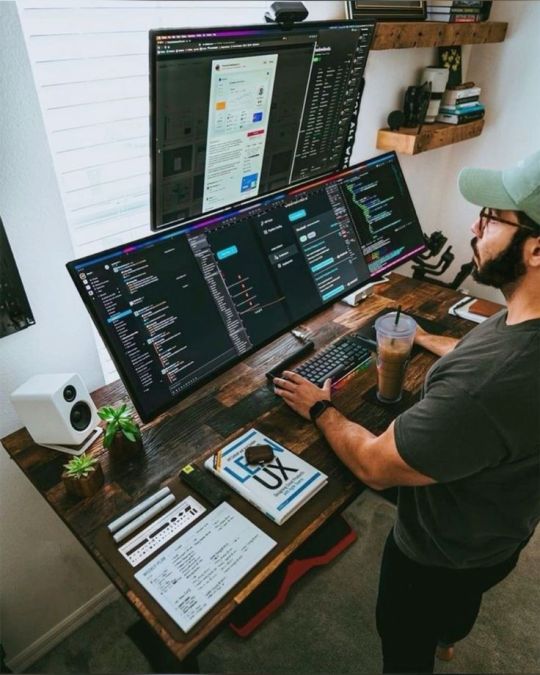
The majority of people believe that traders who are successful are simply fortunate. In actuality, discipline and preparation are key.
A learning curve exists: Actually, not even the most successful traders were born with all the answers. They studied tactics and patterns for years.
Controlling Your Emotions: In actuality, maintaining composure and making thoughtful choices even when you lose, is the backbone of trading success.
Practice Pays Off: It's true that you can gain confidence without risking everything by practicing with demo accounts or tiny deposits.
2. The World of Trading Is Greater Than You May Imagine
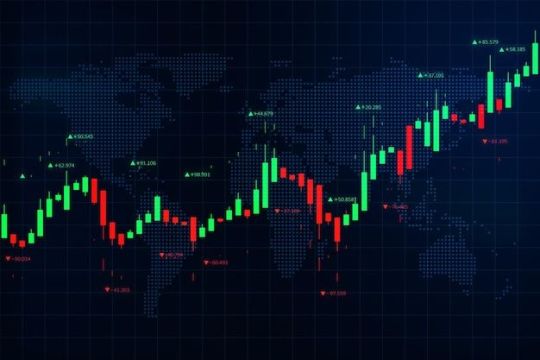
Let me reassure you that trading is far more varied than you may have assumed.
Foreign exchange, or forex, is a worldwide phenomena with tremendous opportunities for trading currencies such as the US dollar or the euro.
Cryptocurrency Boom: Trading is now easier than ever because of platforms like Ethereum and Bitcoin, which are revolutionizing the market.
Commodities: Did you know that people exchange coffee, oil, and gold? These marketplaces are flourishing and can be excellent places to start.
3. The True Secret To Mastery Is Risk Management

The best traders try to safeguard their losses rather than win every time, which is something that most newcomers are surprised to learn.
Establish Limits at All Times: Stop loss orders act as a kind of safety net for your trades.
Little Steps, Big Results: Especially in inconsistent markets, diversifying your bets lowers risk.
Knowing when to Give Up: To be honest, giving up on a bad trade can prevent more serious problems later.
4. It's Not Just About Money, It's About a Mindset

Has trading ever seemed too daunting to you? How you think matters more than how much you own.
Patience Wins: Most gains take time to materialize. Waiting for the appropriate opportunities is extremely important.
Learning Never Stops: Even experienced traders are constantly improving and learning up new skills from changes in the market.
Resilience Is Essential: To be honest, what sets great traders apart from the rest is their capacity to recover from setbacks.
5. You Don’t Need a Fortune to Start
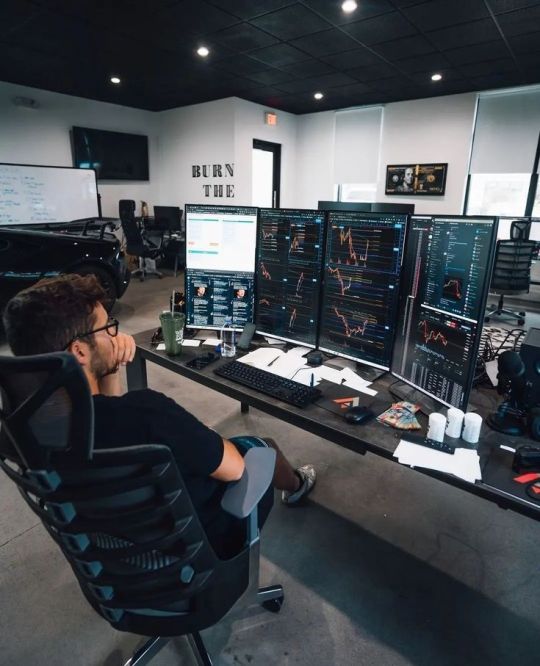
The idea that trading necessitates a large initial investment is out of date. Anyone can start small in the modern world.
Micro Trading Apps: Robinhood and other platforms enable trades with as little as a few dollars.
Learning with Low Risks: By starting small, you may gain an understanding of the market without worrying about suffering significant losses.
Leverage Wisely: If done well, even modest investments can increase in value.
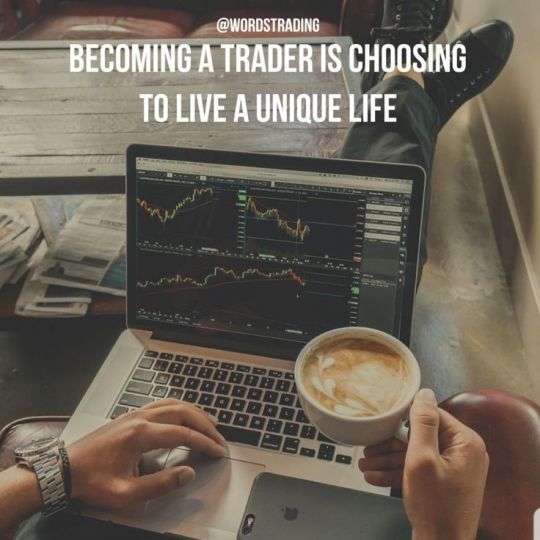
A Genuine Truth About Trading:
Anyone who promises you that trading is a quick way to make a lot of money isn't telling the truth. It all comes down to developing a skill set that becomes better with time. The possibilities are unlimited if you're prepared to study, practice, and maintain your discipline.
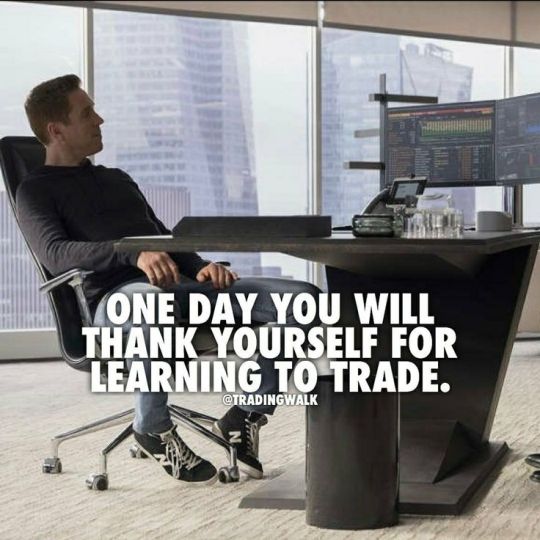
What is stopping you, then?
Kindly send your ideas or questions in comments so that we may have an open discussion.
"We're Building This Together"
Success is more meaningful when we achieve it together, with each shared story and learned lesson. This is more than just trading knowledge it’s about building a supportive community where we can openly share advice, experiences, and encouragement.
Your story could truly encourage someone else who is struggling on their journey!
Remember, each of you brings unique value and respect to this community, and I’m really grateful to have you here. Let's keep learning, growing, and achieving success together.
Your shared experiences, with all their ups and downs, encourage us all.
Together We're not just a community; we're a family, always standing by each other, no matter what comes our way.
Good Lucks 😊
#stock market#trading tips#cryptocurrency#tradingmindset#forextrading#learntotrade#trading success#financialfreedom#tradingskills#entreprenuership#passive income#personal finance
2 notes
·
View notes
Text
Wcome bonus forex $30

At SWMarkets, new customers who make profit by trading in a Demo Account are eligible for a welcome bonus of $30. Forex traders can benefit from SWMarkets’ attractive No Deposit Welcome Bonus of $30. Learn how you can make the most of this bonus and begin trading without putting your own funds at risk.
The promotional link for the $30 Forex No Deposit Bonus offered by SWMarkets can be found at
SWMarkets $30 Forex No Deposit Bonus presents a favorable chance for novice traders to enter the forex market without the need to put in their own money initially. By using this bonus, traders can gain first-hand experience of actual trading conditions and potentially earn profits without any initial financial commitment. This offer permits traders to test their strategies and familiarize themselves with the market before committing their own funds. It’s a risk-free opportunity to explore the world of forex trading and determine if it aligns with your interests. Register today and utilize this time-limited promotion to begin your trading venture.
SWMarkets Welcome Bonus of $30 with No Deposit for Forex Trading
In order to receive the Free Welcome Bonus, one can participate in demo account trading.
First Step
Create an account on the SWMarkets application and receive a deposit of $20,000 in your Demo Account.
Second Step
In just two weeks, earn a profit of over $5,000 by trading on the Demo Account.
**STEP 3
To receive a $30 Bonus, please reach out to customer service and provide a screenshot of your profit.
Fourth Step
Obtain the privilege of withdrawing a free bonus by trading through a live account.
Get a Forex No Deposit Welcome Bonus of $30 when you withdraw
Upon confirmation that your trading profits on a demo account exceed $5000, the $30 Forex No Deposit Welcome Bonus will be deposited directly into your wallet.
Once you have deposited and traded at least 2 lots, you are eligible to withdraw a $30 No Deposit Forex Welcome Bonus.
This bonus is only valid for a period of 7 days.
These two lots are exclusively for trading in Forex and Commodities.
Guidelines for SWMarkets $30 Forex No Deposit Bonus
Individuals who fulfill the aforementioned requirements and are not disqualified by any terms of the promotion will be deemed eligible customers. Nevertheless, we reserve the right to ask for evidence of eligibility.
The $30 Forex No Deposit Welcome Bonus can only be claimed by customers once. These bonuses are valid for a period of 7 days. If they are not redeemed within this time frame, they will be forfeited and unable to be withdrawn.
Once customer service has verified your account, the $30 No Deposit Forex Bonus will be added to your wallet. To withdraw the bonus, you must first complete 2 lots of trading in Forex and Commodities.
After providing a 7-day notice, we have the authority to discontinue and retract the incentive program. The $30 No Deposit Welcome Forex Bonus will be terminated if any of the subsequent situations occur:
The incentive plan will cease to be active once 7 days have passed. Although the customer has made a deposit, they have not yet completed 2 lot trading. The 30$ bonus will be given to the customer within a period of 7 days.
In the event that the account does not make a deposit within 7 days after receiving the $30 forex free bonus, we will reclaim the bonus amount and any profits earned. The customer must place a buy and sell order for the same trading product within the allotted time period in order to qualify.
#forex#forex broker#forex news#forexmarket#forex market#forex trading#forex bonus#forex deposit bonus#welcome bonus
6 notes
·
View notes
Text
Why It’s Important to Learn from Top Forex Brokers Review for Choosing the Right Broker

In the vast world of Forex trading, selecting the right broker is a critical step that can significantly influence your trading success. With numerous brokers available, each with its own unique features, spreads, and platforms, making an informed decision can be daunting. This is where understanding top Forex brokers review becomes essential. In this article, we will explore why these reviews are crucial for your trading journey and how they can help you choose the right broker tailored to your needs.
Understanding the Role of Forex Brokers
Forex brokers serve as intermediaries between traders and the foreign exchange market. They facilitate currency trades, provide access to trading platforms, offer market insights, and assist with account management. A reputable broker ensures the safety of your funds, compliance with regulatory standards, and access to high-quality trading tools.
The Importance of Learning from Top Forex Brokers Reviews
1. Evaluating Credibility and Trustworthiness
When choosing a Forex broker, trust is paramount. Top Forex brokers review can help you assess a broker’s credibility through:
Regulatory Status: A regulated broker is overseen by financial authorities, ensuring adherence to strict guidelines. Reviews typically highlight whether brokers are regulated by entities such as the FCA (UK), ASIC (Australia), or NFA (U.S.). This oversight provides a level of safety for your funds.
User Feedback: Authentic experiences from other traders offer insights into a broker’s reliability. Positive reviews affirm a broker’s trustworthiness, while negative feedback can serve as a warning signal.
2. Understanding Trading Conditions
Different brokers offer varying trading conditions, which can greatly impact your profitability. By consulting top Forex brokers review, you can gather critical information about:
Spreads and Commissions: The costs associated with trading can vary widely. Reviews often provide comparisons of spreads and commissions, allowing you to identify brokers with competitive pricing.
Leverage Options: While leverage can amplify your trading potential, it also increases risk. Reviews clarify the leverage ratios different brokers offer, enabling you to choose one that aligns with your risk tolerance.
3. Assessing Customer Support
Having access to responsive customer support is vital in Forex trading. Issues can arise unexpectedly, and prompt assistance can make a difference. Reviews often cover:
Availability: Knowing whether a broker offers 24/5 or 24/7 customer support can help you select one that fits your trading schedule.
Quality of Service: Insights from user experiences can shed light on how quickly and effectively a broker resolves issues. Look for brokers with positive reviews regarding their customer service.
4. Examining Trading Platforms and Tools
The trading platform is your primary interface for executing trades and analyzing markets. A user-friendly platform can enhance your overall experience. Top Forex brokers review provide insights into:
Platform Usability: Reviews often discuss how intuitive and easy it is to navigate a broker’s platform. A smooth user experience can save you time and frustration.
Tools and Features: Different brokers offer various tools for technical analysis, charting, and automated trading. Understanding what features are available can help you choose a broker that meets your specific needs.
5. Identifying Educational Resources
For beginner traders, education is crucial. Many brokers provide educational resources to help traders develop their skills. Reviews typically highlight:
Quality of Educational Content: Look for brokers that offer comprehensive learning materials, including tutorials, webinars, and market analysis. Reviews can help you identify brokers that excel in educational support.
Access to Market Insights: Some brokers provide regular market updates and insights, which can be beneficial for traders at all levels. Reviews often highlight brokers that offer excellent analytical resources.
6. Understanding User Experience
User experience encompasses all aspects of dealing with a broker, from account setup to withdrawal processes. Reviews can reveal:
Ease of Account Setup: Many reviews detail how straightforward or complicated the account opening process is. A hassle-free setup can enhance your initial experience with a broker.
Withdrawal Processes: Timely and transparent withdrawals are critical. Reviews often highlight the experiences of other users regarding withdrawal times and any associated fees.
7. Avoiding Common Pitfalls
Not all brokers are transparent, and some may have hidden fees or unfavorable terms. Learning from top Forex brokers reviews allows you to:
Spot Red Flags: Frequent complaints about withdrawal issues, hidden charges, or poor customer service can signal potential problems with a broker.
Gain Insights from Others: Understanding the experiences of other traders can help you avoid common pitfalls and make more informed decisions.
How to Find Reliable Forex Broker Reviews
To maximize the benefits of top Forex brokers reviews, it’s essential to find trustworthy sources. Here are some tips:
Seek Established Review Platforms: Reputable financial websites often employ analysts who rigorously evaluate brokers, offering unbiased reviews.
Cross-Reference Information: Don’t rely solely on one review. Compare multiple sources to get a well-rounded view of a broker’s strengths and weaknesses.
Focus on Recent Reviews: The Forex landscape can change rapidly, so look for the most current reviews that reflect recent trading conditions.
The Top 10 Forex Brokers You Should Consider
Selecting the right Forex broker is a pivotal decision for anyone venturing into currency trading. With hundreds of brokers vying for your attention, each offering unique features, fees, and services, making an informed choice can be overwhelming. This comprehensive top Forex brokers review aims to simplify that process by presenting the top 10 Forex brokers, highlighting their strengths, trading conditions, and key features.
Why Choosing the Right Forex Broker Matters
1. Safety of Funds
A reliable broker ensures the safety of your capital. Brokers regulated by reputable authorities provide assurance that they adhere to stringent financial standards, protecting your investments.
2. Cost of Trading
Different brokers have varying spreads and commissions, which can significantly affect your overall profitability. Understanding these costs is vital for effective trading.
3. Access to Tools and Resources
The right broker provides tools, educational resources, and analytical data that can enhance your trading strategy and improve your skills.
4. Quality of Customer Support
When issues arise, having access to responsive customer support can make a significant difference in your trading experience.
Key Criteria for Evaluating Forex Brokers
To ensure a comprehensive review, we considered several important factors:
Regulation: Is the broker regulated by a reputable authority?
Trading Costs: What are the spreads, commissions, and other fees?
Trading Platforms: How user-friendly and feature-rich are the platforms offered?
Customer Support: What kind of support is available, and how responsive is it?
Educational Resources: Are there resources available to help traders improve their skills?
The Top 10 Forex Brokers
1. IG Group
Overview: IG Group is one of the oldest and most respected Forex brokers in the world, known for its robust trading platform and extensive market offerings.
Regulation: Regulated by FCA (UK) and ASIC (Australia).
Trading Costs: Spreads from 0.6 pips on major pairs.
Platform: Proprietary platform and MetaTrader 4.
Customer Support: 24/5 support via phone, email, and live chat.
Educational Resources: Offers webinars, trading guides, and market analysis.
2. Forex.com
Overview: Forex.com, a subsidiary of GAIN Capital, is well-known for its user-friendly platform and comprehensive trading services.
Regulation: Regulated by NFA and CFTC (U.S.).
Trading Costs: Spreads start from 0.2 pips.
Platform: Proprietary platform and MetaTrader 4.
Customer Support: 24/5 support through multiple channels.
Educational Resources: Extensive educational content, including videos and articles.
3. OANDA
Overview: OANDA is recognized for its transparent pricing and high-quality trading data, appealing to both beginners and experienced traders.
Regulation: Regulated by CFTC (U.S.) and FCA (UK).
Trading Costs: Spreads start at 1 pip, with no commission on standard accounts.
Platform: Proprietary platform and MetaTrader 4.
Customer Support: 24/5 customer support via phone and email.
Educational Resources: Offers a variety of educational materials and market insights.
4. eToro
Overview: eToro is a pioneer in social trading, allowing users to copy the trades of successful traders and engage with a vibrant community.
Regulation: Regulated by FCA (UK) and CySEC (Cyprus).
Trading Costs: Spread-based fees with no commissions on stock trading.
Platform: Unique social trading platform and mobile app.
Customer Support: 24/5 customer support.
Educational Resources: Provides trading guides, webinars, and community features.
5. XM Group
Overview: XM is known for its flexible trading conditions and a variety of account types tailored to different trading strategies.
Regulation: Regulated by ASIC (Australia) and CySEC (Cyprus).
Trading Costs: Spreads from 0.0 pips on certain accounts.
Platform: Supports MetaTrader 4 and 5.
Customer Support: Available 24/5 in multiple languages.
Educational Resources: Offers webinars, trading articles, and various tools for traders.
6. Pepperstone
Overview: Pepperstone is favored for its low-cost trading environment and exceptional customer service.
Regulation: Regulated by ASIC (Australia) and FCA (UK).
Trading Costs: Spreads as low as 0.0 pips on Razor accounts.
Platform: MetaTrader 4, MetaTrader 5, and cTrader.
Customer Support: 24/5 support via live chat, phone, and email.
Educational Resources: Extensive educational materials including articles and tutorials.
7. Saxo Bank
Overview: Saxo Bank caters to professional traders with its premium trading tools and a wide range of assets.
Regulation: Regulated by FCA (UK) and FSA (Denmark).
Trading Costs: Competitive pricing with low spreads for premium accounts.
Platform: SaxoTraderGO and SaxoTraderPRO.
Customer Support: 24/5 customer support via multiple channels.
Educational Resources: Provides in-depth market analysis and educational content.
8. FXTM (ForexTime)
Overview: FXTM is known for its flexible trading options and extensive educational resources for traders.
Regulation: Regulated by FCA (UK) and CySEC (Cyprus).
Trading Costs: Spreads from 0.1 pips on ECN accounts.
Platform: Supports MetaTrader 4 and 5.
Customer Support: Available 24/5 via phone and email.
Educational Resources: Offers webinars, seminars, and market analysis.
9. IC Markets
Overview: IC Markets is preferred by high-frequency traders for its low-cost trading environment and excellent liquidity.
Regulation: Regulated by ASIC (Australia).
Trading Costs: Spreads as low as 0.0 pips.
Platform: MetaTrader 4, MetaTrader 5, and cTrader.
Customer Support: 24/7 customer support available.
Educational Resources: A range of tutorials and market insights are provided.
10. Admiral Markets
Overview: Admiral Markets offers diverse account types and a wide range of trading instruments, catering to both beginners and experienced traders.
Regulation: Regulated by FCA (UK) and ASIC (Australia).
Trading Costs: Competitive spreads starting from 0.0 pips.
Platform: MetaTrader 4 and 5.
Customer Support: 24/5 support via live chat, phone, and email.
Educational Resources: Extensive educational materials and market analysis available.
In the competitive landscape of Forex trading, choosing the right broker is essential for your trading success. This top Forex brokers review highlights some of the best options available, each with unique features that cater to different trading styles and needs.
When making your choice, consider your trading goals, risk tolerance, and the specific features that are most important to you. Whether you prioritize low trading costs, advanced platforms, or robust educational resources, the brokers listed above provide excellent starting points for your trading journey.
Conclusion
In the fast-paced world of Forex trading, selecting the right broker is vital for your success. By utilizing top Forex brokers review, you can gain valuable insights into broker credibility, trading conditions, customer support, and overall user experience. This informed approach not only increases your chances of finding a suitable broker but also enhances your overall trading experience.
Investing time in researching and comparing brokers through reviews is a wise step that can lead to better trading outcomes and greater confidence in your trading decisions. By being well-informed, you can navigate the Forex market more effectively and work towards achieving your trading goals. Happy trading!
2 notes
·
View notes
Text
How can I learn how to trade Forex and stocks?
How to trade Forex or Stocks ?

Trading can be a very lucrative work. However, the sad reality in trading is that many people fail to succeed at this endeavor. I will explain to you exactly why and how you can be part of the minority that prospers as a successful trader. I am myself a trader for now more than 4 years and everything that I will share with you comes out of experience. And so, if you want to learn how to trade forex or stocks, you must first understand why many people fail at it. Even the smartest and most educated of the society do and this is not related to IQ. Here’s why:
1) The masses have the wrong information about trading; they believe it to be “a get rich overnight” thing. The truth is, it’s totally the contrary. Any other job in the world that has a high pay requires you to study for years and get many hours of practice and lesson. Why would people think otherwise about trading? Probably because of all the scamming that is going on around in social media. Those people sell a dream, they sell lies and make all their money by doing so and none from trading. Therefore, the first thing you need to understand if you want to make money trading is that this won’t make you a millionaire overnight.
2) They do not take any course and simply jump right into to trading thinking they’re smarter than everyone else. They might start trading in a demo account and make some good amounts of profits luckily or find an interesting indicator that will lead them to believe they found the secret formula. Putting your money at risk with no previous education and experience is to be a complete fool. And regarding indicators, they are not the answer. Yes, they help in chart analysis and I do recommend them but what truly matters is the price action itself. That is, making decisions based the candlestick formations you see on your chart.
3) They do not have a plan. They are not prepared to trade the markets neither know what they’re doing. They open positions simply because their gut tells them and opens all kinds of them. Without a plan, you’re guaranteed to fail miserably. You must have a strategy in mind and steps to execute it accordingly. If you’d like to learn how to find a trading strategy that suits you without losing money, then you may want to read on as I will explain this later.
4) Poor money management. They take absurd risks in each of their positions. There is math in trading and you must understand that the higher your risk per position, the less turns you have. Sure, you may make a gain of 10% out of one position but you may lose that 10% as easily and even more. The successful traders use minimal risk so that they have as many shots as possible to let their edge in the market work itself out over time.
5) They have no psychological control over themselves and no discipline. Professional traders are like monks. It’s not as what you see in the movies. Trading is boring as you spend your days sitting in front of a screen and waiting for the right opportunity to catch a move. A successful trader will not have any kind of emotion within themselves and simply stick to their rules and keep executing his strategy. Whether a position is a winner or a loser, it doesn’t affect them emotionally. The reason why is because they have a working plan and strategy. Them getting emotional over the output of a trade is not going to help at all but in the contrary, it’s going to cost them a lot of money. Making decisions based on emotions and going against your rules and strategy is guaranteed to fail.
6) They repeat the same mistakes repeatedly without improving themselves and keep no records of their trading. Some things in life must be learned through trial and error and trading is part of it. Of course, if you don’t know what you’re doing in the first place, you wouldn’t learn anything off your mistakes. But if you do have a certain plan or strategy, then the mistakes you make are valuable lessons. You must keep track of the positions you get into, your losses as well as your wins, so that you can analyze your trading and understanding where you can improve yourself and what you should keep doing or stop doing.
These are the most common reasons people fail at trading. Ultimately, they have false expectations, they do not do any research and have no plan or strategy, they trade without having any experience, they take absurd risks and their trading decisions are based off their emotions be it greed or fear. You need to develop a trader’s mindset and way of thinking. The best way to learn how to do that is to learn from someone else, that is; buying a book from a person with reputation in the subject.
Now, after having understood why there are so many failures in trading, I can explain the steps you need to take to become a profitable and successful trader. For the sake of keeping this answer short and as straight forward as possible, these are very simplified steps.
1) When making trading decisions, you base yourself on either technical analysis, which is analysis the charts, or fundamental analysis, which is looking at the numbers and at the policy of said company or country if you’re trading FOREX. The most used and suggested type of analysis for retail traders is technical analysis since you have real time information as to what’s going on in the market. And so, if you do not yet have the basics of technical analysis, I suggest you find a website that talks about it for free. Keep in mind, if you’re interested in more advanced teaching in technical analysis, there are many books out there.
2) Once you understand how the market moves and how technical analysis works, you need to develop your strategy. How can you do that? By looking at the charts and finding patterns or moves which you could’ve taken. Find those patterns that happens on multiple occasions and take screenshots of them and have it all categorized properly. Here is a very simple one, the continuation pattern:









Now you may notice I am using different indicators on my chart. The lines that you see are exponential moving averages which I basically use as an indication of the trend and as support and resistance in cases where applicable. If you’re interested in knowing how exactly the exponential moving average works then you can read about it in this article by Investopedia here. When a cross over happens with those EMAs, it is a sign that the market is shifting its trend. With experience and practice, you will be able to tell when the right opportunities present itself.
Regarding the indicator at the bottom window, it’s called a moving average convergence divergence (MACD). It is basically used to determine the momentum of the market. If you’d like to know more about it then I suggest you read this article by Investopedia here. Keep in mind that indicators are solely used to help make trading decisions. As a trader, I have learned to associate patterns in the market with how my indicators act. Therefore, I can always make a correlation between my technical analysis and my indicators.
Before moving to the next step, I would like to talk about the 2 major trading styles which is day trading and swing trading. A day trader is mostly like a person who works from 9 to 5. Since they place their trades on the lower timeframes and their trades last on average from a few minutes to a maximum of a few hours, they tend to sit in front of their computer during market hours. However, a swing trader doesn’t have to spend many hours behind his computer since his trades can last from about a day to a few weeks in some cases. A swing trade catches the big moves the market makes in direction of the trend or after pullbacks. The screenshots shared above are all swing trades that have lasted a few days if not, weeks.
I highly recommend anyone that is interested in trading to adopt the swing trading style because not only does it give you more freedom but since the trades you place are on the higher timeframes; thus, the trends are more important, you tend to have a much higher win to loss ratio. While as a day trader, you trade the ups and downs that happens in the market within a day and within the actual longer time frames. A swing trader may place about 3 to 5 trades in a given month while a day trader may place at least 5 times as much if not more. You must understand that trading the long-term trend is safer and holds higher probability of success than trying to profit from the ups and downs the market makes within a day. However, it is up to personal preferences and you may try both to figure out the one that works better for you.
3) Now that you understand technical analysis and have a strategy, here comes the most important and crucial part; back-testing. Back-testing is trading in a simulator software on past historical data to get the experience and practice required to trade profitably and to develop winning strategies. The advantage of a back-testing software is that you do not have to trade in a real time market and can speed up the simulation. This gives you the edge of getting a year of trading experience in only but a week or more, depending on how much time you put into it. While back-testing, you will be able to test your different patterns and refine them so that your profit ratio is at its highest. You will also build a database of your performance and have crucial data as to what you’re doing right or wrong and where you can improve. There are many back-testing software’s in the internet, but they usually cost in the hundreds. The back-testing software I personally use and suggest is not in the hundreds but only 99$ and comes with everything you need whether it be stats or a friendly interface. You can get it here. It works with the most used free Forex trading platform; Metatrader 4 which you can obtain from any Forex broker. You can trade the foreign exchange and indices with it to gain the experience you need as a trader. Keep in mind that if you do not like the product you can always return it for a full refund within 14 days of the purchase date. If you’re serious about trading, then you understand how important it is to back-test your strategies and keep your knowledge and experience in top shape. Trading is a performance-based work and needs practice.
If you’ve been struggling as a trader and keep searching answers for how to trade forex or stocks profitably, the obvious solution, which most totally ignore, is backtesting. Keep in mind that if you do backtest then you will speed up your learning process, thus becoming a consistent profitable trader much sooner than otherwise! This will save you a lot of time and money.
Furthermore, before ending this article, I’d like to make sure you understand what to expect from trading. Unfortunately, with all those presumably “pro” traders on social media that advertise a wealthy lifestyle but live off from selling trading products and services, many people are deceived. If you have the wrong expectations, then you will undoubtedly fail. A very few of them may be legitimate traders but you would have to understand that they are on a different level than you with more capital to trade with. However, most of them are faking making a living through trading and make most if not all their income from selling you their products and services because it’s an easier way to make money off the greed of people.
To put it simple and precisely, trading is but a way of investing your money in your own terms to make more returns and profits. When you do acquire the experience it takes to trade profitably, then the returns are much better than you would get anywhere else. However, it is nothing that simple and easy and you’d have to spend many hours on researching, practicing and educating yourself on the subject. Hence, the reason why so many people that get into trading fails is because they do not have the right expectations. However, if you do take this professionally and truly invest yourself into it then you could without a doubt make tremendous returns over the years as your equity compounds if you don't withdraw much of it. Moreover, do not expect to live off from trading in your first years. Until you have a large sum to trade with and have gained the required experience, trading will simply be something that you would do on the side of your main job.
At the end, after you understand what it takes to be a trader, one can realize that your success is determined by your ability to think rationally. By your ability to always think objectively rather than subjectively. A wise person would do his research firsthand just as you might be doing right now and figure out the ins and outs of trading. Only after determining whether they like it and can do it, one would write a plan about how they intend to move forward without skipping any steps. In the contrary, an irrational and unwise person would not do a lot of research and foolishly risk their capital without even actually understanding the mechanism of the system which in turn is a guaranteed failure. The lesson is to understand what you’re doing before doing it.
To sum I it up, do not trade a live account unless you have done the practice on a simulation software and are happy with your performance. Only then, when you have a clear strategy and enough experience to trade profitably, trade with real money. Until then, it will take you a while before you gain the required knowledge and expertise. One thing to always keep in mind is that at whatever speed you’re going, eventually you’ll reach your destination. What matters is not giving up and always showing up. Slow and steady always wins the race. I hope I’ve helped you out. If I did, an upvote would be very appreciated so others can have this information as well! Best of luck!
If you are interested in being an active trader and day trade rather than long term hold and invest, then I invite you to read this second article I wrote which explains what it takes to be a successful and profitable day trader:
4 notes
·
View notes
Text
Education and Training with Baron Learning Pvt Ltd
The world of Forex trading offers immense potential for profit, but it also comes with its share of risks. At Baron Learning Pvt Ltd, we understand that navigating the Forex market requires a solid foundation of knowledge and skill. That's why we offer comprehensive Forex education and training designed to equip traders with the tools and strategies they need to succeed.
Why Forex Trading?
Forex, or foreign exchange trading, involves buying and selling currencies in a global marketplace. The Forex market is the largest and most liquid financial market in the world, with trillions of dollars traded daily. Traders are drawn to Forex for its:
High Liquidity: The ability to enter and exit trades with ease.
24-Hour Market: Trading is continuous, providing opportunities around the clock.
Leverage Opportunities: Traders can control larger positions with a smaller amount of capital.
Diverse Trading Options: Pairs of currencies offer a wide range of trading opportunities.
Our Approach to Forex Education
At Baron Learning Pvt Ltd, we believe in a structured and holistic approach to Forex education. Our programs are designed to cater to both beginners and experienced traders looking to refine their strategies.
Foundational Knowledge:
Introduction to Forex: Understanding the basics, including currency pairs, market participants, and trading sessions.
Economic Indicators: Learning how global economic factors influence currency values.
Technical Analysis: Utilizing charts, trends, and patterns to make informed trading decisions.
Fundamental Analysis: Assessing the impact of economic news and events on the Forex market.
Advanced Strategies:
Risk Management: Implementing techniques to protect your capital and manage risk.
Trading Psychology: Developing the right mindset for disciplined and strategic trading.
Algorithmic Trading: Exploring automated trading systems and how they can enhance your trading strategy.
Custom Trading Plans: Crafting personalized trading plans based on individual goals and risk tolerance.
Practical Training:
Live Trading Sessions: Engaging in real-time trading with expert guidance.
Simulated Trading Environments: Practicing strategies in a risk-free setting.
One-on-One Mentorship: Personalized coaching from experienced Forex traders.
Community Support: Access to forums, discussion groups, and networking opportunities with fellow traders.
Why Choose Baron Learning Pvt Ltd?
Expert Instructors: Our team comprises seasoned traders with years of experience in the Forex market.
Comprehensive Curriculum: Our courses cover every aspect of Forex trading, from basic principles to advanced strategies.
Flexible Learning: We offer both online and in-person training options to fit your schedule.
Ongoing Support: Our commitment to your success extends beyond the classroom with continuous support and resources.
Getting Started
Embarking on a journey in Forex trading requires dedication, discipline, and the right education. At Baron Learning Pvt Ltd, we are committed to providing you with the knowledge and skills needed to navigate the Forex market confidently.
Ready to take the first step towards mastering Forex trading? Contact us today to learn more about our Forex education and training programs.
3 notes
·
View notes
Text
How to Earn Money in Trading: Simple Strategies for Success

Trading has become an increasingly popular way for people to grow their wealth and achieve their financial goals. Whether you're interested in forex trading, stocks trading, or crypto trading, there are opportunities to earn money by investing wisely. However, trading is not just about luck; it requires a rich mindset, a solid strategy, and a deep understanding of the markets. In this post, we’ll explore how to earn money in trading by focusing on key principles and strategies that can set you on the path to financial success.
Understanding the Basics of Trading

Before diving into any form of trading, it's crucial to understand the basics. Trading involves buying and selling financial instruments like stocks, currencies, or cryptocurrencies with the aim of making a profit. Each type of trading—whether it's forex trading, stocks trading, or crypto trading—has its own unique characteristics and requires a different approach.
Forex Trading: It involves trading with currencies in the foreign exchange market. It’s one of the largest financial markets in the world, with trillions of dollars traded daily.
Stocks Trading: Here, you buy and sell shares of companies. The stock market can be volatile, but with careful analysis, it offers significant profit opportunities.
Crypto Trading: Cryptocurrency trading involves buying and selling digital currencies like Bitcoin and Ethereum. It’s a rapidly growing market, known for its high volatility.
Setting Clear Financial Goals

To earn money in trading, it's essential to set clear financial goals—like what do you wanna achieve through trading? Are you looking to build long-term wealth, or are you interested in making quick profits? Defining your financial goals will guide your trading strategy and help you stay focused.
For example, if your goal is to create a steady income stream, you might focus on stocks trading and dividend-paying stocks. If you're aiming for high-risk, high-reward opportunities, crypto trading could be more suitable.
Developing a Rich Mindset

A rich mindset is critical for success in trading. This mindset is about being patient, disciplined, and focused on long-term success rather than short-term gains. Many new traders fail because they get caught up in the excitement of quick profits, leading to poor decisions and losses.
A rich mindset also involves continuous learning. The financial markets are constantly changing, and staying informed is key to making smart trading decisions. Whether you’re involved in forex trading, stocks trading, or crypto trading, always keep learning and adapting to new market conditions.
Choosing the Right Trading Strategy
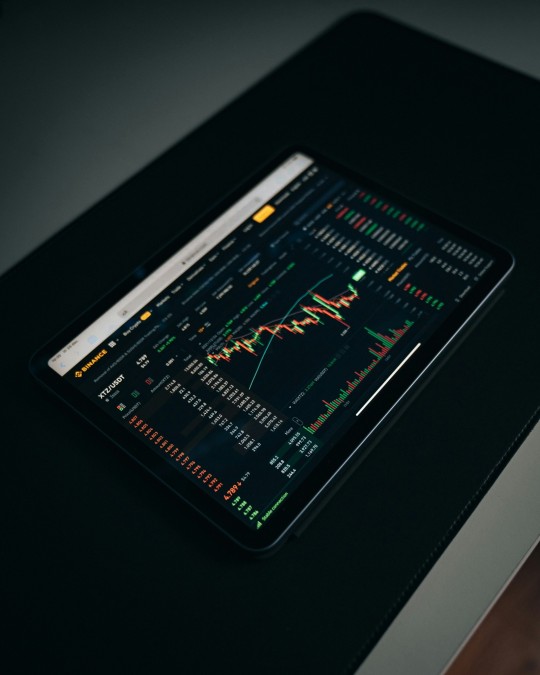
Your trading strategy will significantly impact your ability to earn money in trading. There are various strategies you can adopt depending on your financial goals and risk tolerance.
Day Trading: This involves buying and selling financial instruments within a single trading day. It's fast-paced and requires quick decision-making.
Swing Trading: Here, you hold positions for several days or weeks, aiming to profit from short- to medium-term price movements.
Long-Term Investing: This strategy involves holding onto investments for years, betting on the overall growth of the market.
Each strategy has its pros and cons, and the best one for you will depend on your trading style, market knowledge, and financial goals.
Risk Management is Key

One of the most important aspects of earning money in trading is managing your risk. Even experienced traders face losses, but with proper risk management, you can minimize those losses and protect your capital.
Set stop-loss orders, never invest more than you can afford to lose, and always diversify your portfolio. Whether you’re engaged in forex trading, stocks trading, or crypto trading, understanding and managing risk is crucial for long-term success.
4 notes
·
View notes